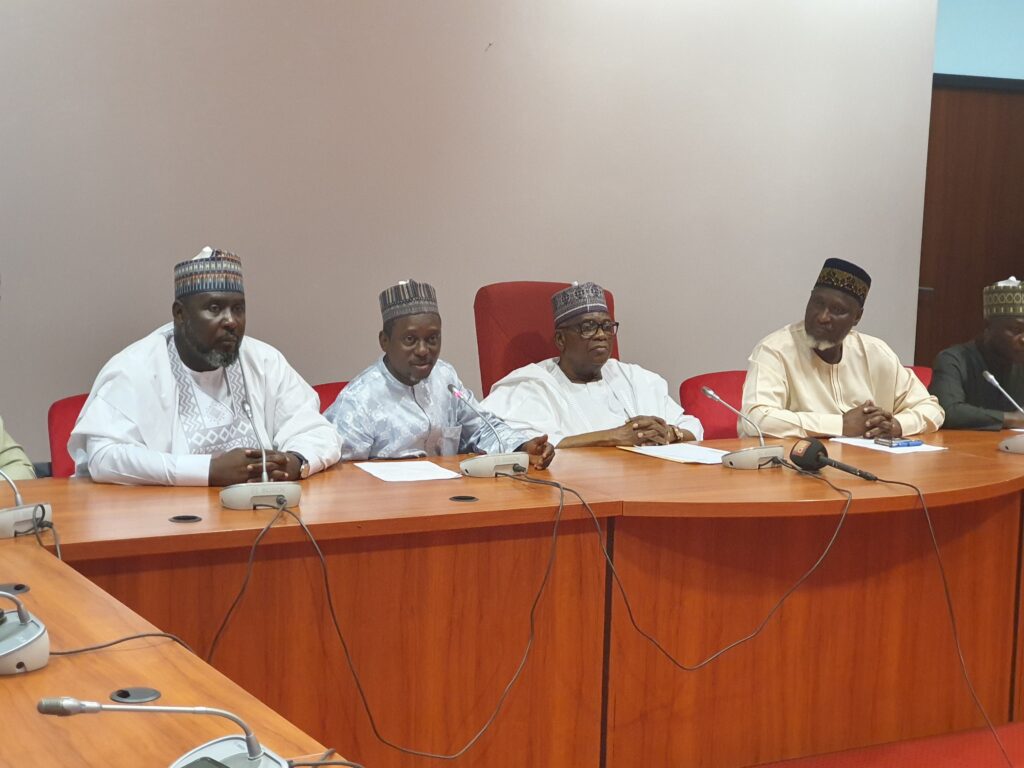**Back Ndume’s Call for Balanced Appointments, Development
Lawmakers from the North East region of Nigeria have raised serious concerns over the exclusion of their zone from the Federal Government’s $530 million Special Agro-Industrial Processing Zones (SAPZ) initiative, despite the region’s significant agricultural potential.
During an emergency meeting held in Abuja on Thursday, the lawmakers voiced their dissatisfaction with the selection process, which saw seven states, including the Federal Capital Territory (FCT), chosen to host the agro-industrial zones, but no state from the North East was included.
They described the oversight as “unfair” and “discriminatory,” urging a reevaluation of the decision to ensure regional inclusivity.
When questioned about Vice President Kashim Shettima’s role in the exclusion, the lawmakers quickly clarified that Shettima, who launched the first phase of the SAPZ project in Kaduna, was representing President Bola Tinubu and not acting in any regional capacity. Still, they noted that the absence of any North East state undermines the initiative’s goal of achieving nationwide agricultural transformation.
The SAPZ programme is designed to enhance Nigeria’s agricultural value chain, reduce post-harvest losses, and create jobs by connecting farmers directly with processing industries. With financial backing from the Federal Government, the African Development Bank, the Islamic Development Bank, and the International Fund for Agricultural Development, the project is seen as a game-changer for the country’s agricultural sector.
However, the North East, known for its vast agricultural resources—including large-scale cultivation of cereals, legumes, and livestock—was conspicuously omitted from the first phase.
This exclusion has prompted a wave of protest from the North East lawmakers, who argue that the region’s significant contribution to Nigeria’s food production and GDP should not be overlooked.
Senator Danjuma Goje, Chairman of the North East Caucus in the National Assembly, addressed the situation, emphasizing the region’s central role in national food security.
“The North East is the largest geopolitical zone in Nigeria in terms of landmass and agricultural potential. Excluding us from the SAPZ initiative undermines our contribution to national development,” Goje stated.
The lawmakers expressed frustration over what they perceive as a pattern of neglect toward the North East, which has faced the brunt of insecurity and economic instability.
They pointed to the exclusion as further evidence of a broader imbalance in national policy, particularly in terms of resource allocation and development priorities.
In addition to their protest over the SAPZ exclusion, the North East lawmakers threw their support behind recent remarks by former Senate Leader Mohammed Ali Ndume. Ndume had criticized the federal government’s appointments, calling them “lopsided” and unfair to the North East.
The lawmakers echoed his sentiment, stressing the need for a more balanced approach to appointments and regional development.
Minority Whip of the House of Representatives, Ali Isah, representing Balanga/Biliri Federal Constituency in Gombe State, expressed his support for Ndume’s stance. “We stand with Senator Ndume in his call for fairness. The North East has been marginalized for too long, and it is time for the federal government to take action to ensure equitable representation and development for all regions,” Isah stated.
The North East lawmakers issued a set of resolutions following their emergency meeting: They commended President Tinubu for sustaining the SAPZ initiative but called for the immediate inclusion of North East states in the programme, stressing that the region’s exclusion was a grave oversight.
They also urged that the federal government reconsider its criteria for the project’s implementation to ensure the North East’s vital agricultural sectors are fully integrated into the initiative.
“We demand that the North East be included in the next phase of the SAPZ programme or, at the very least, reconsidered for inclusion in Phase 1,” said the lawmakers.
“The region’s agricultural strength and economic potential must be recognized and leveraged for the benefit of the entire nation.”
The North East’s exclusion from the SAPZ project is seen by many as a missed opportunity to tap into the region’s vast potential, which includes large-scale livestock production and diverse agricultural output. Stakeholders in the region warn that unless these issues are addressed, the North East could continue to face long-term socio-economic setbacks, further exacerbated by the effects of insecurity.
With strong support from regional representatives and stakeholders, the North East lawmakers are determined to ensure their zone’s inclusion in future national development projects, not only for economic justice but for the fair and equitable development of all regions of Nigeria.
“We are not protesting, but we are bringing attention to the issue,” said one of the lawmakers. “The North East is too important to be left behind. If we don’t speak up now, we risk being overlooked in the future.”


